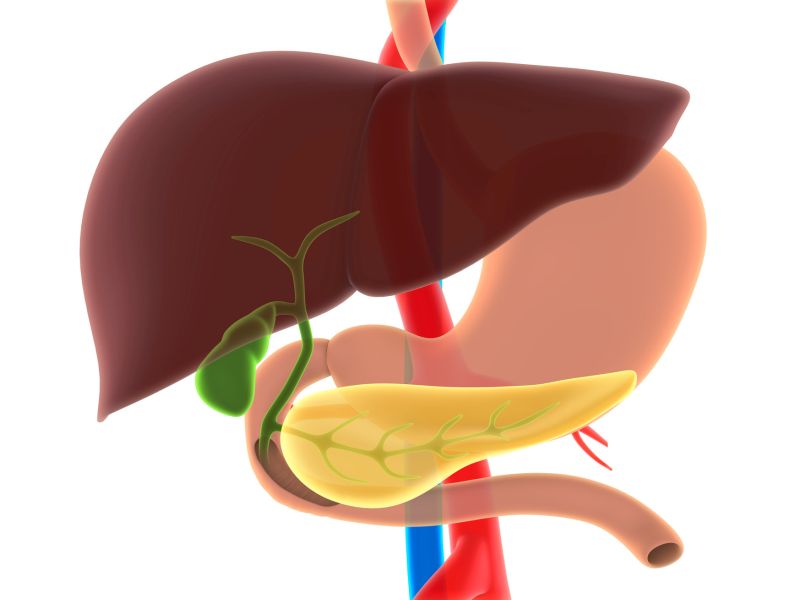Genomics Could Improve Treatment of Pancreatic Cancer

THURSDAY, March 14, 2019 (HealthDay News) -- It's one of the toughest cancers to beat. But new research suggests that identifying the genetics of pancreatic cancer in individual patients could boost survival for some.
The five-year survival rate for pancreatic cancer patients is less than 9 percent. One reason this cancer is so deadly is that many patients are diagnosed at a late stage and often with inoperable tumors.
In some cases, existing chemotherapy drugs might be able to shrink pancreatic tumors if the disease is diagnosed early enough.
In this study, University of Pittsburgh researchers analyzed the genomes of nearly 3,600 pancreatic tumor samples from around the world. In 17 percent, genetics suggested the tumor would respond to existing chemotherapy drugs.
The team also found evidence of hereditary genes -- including some in the BRCA family associated with breast cancer -- that can increase an entire family's risk of pancreatic cancer.
"People have been looking for such markers for a long time, and our study shows that it's possible to break pancreatic cancer patients into different treatment buckets," senior author Dr. Nathan Bahary, an associate professor of medicine, said in a university news release.
Lead author Dr. Aatur Singhi, an assistant professor of pathology, noted that every pancreatic cancer is different. Developing a molecular profile of each patient's tumor could help determine the best treatments, he said.
"Rather than blindly giving patients the same chemotherapy, we want to tailor a patient's chemo to their tumor type. A one-size-fits-all approach isn't going to work. Therefore, we would like to make molecular profiling standard of care for patients with pancreatic cancer," Singhi said in the news release.
The study was recently published online in the journal Gastroenterology.
Singhi and colleagues previously developed a test to evaluate common pancreatic cysts and identify which might progress to cancer. These newly discovered biomarkers can be added to the test, which is already in use at several institutions.
More information
The U.S. National Cancer Institute has more on pancreatic cancer.

The news stories provided in Health News and our Health-E News Newsletter are a service of the nationally syndicated HealthDay® news and information company. Stories refer to national trends and breaking health news, and are not necessarily indicative of or always supported by our facility and providers. This information is provided for informational and educational purposes only, and is not intended to be a substitute for medical advice, diagnosis, or treatment.

